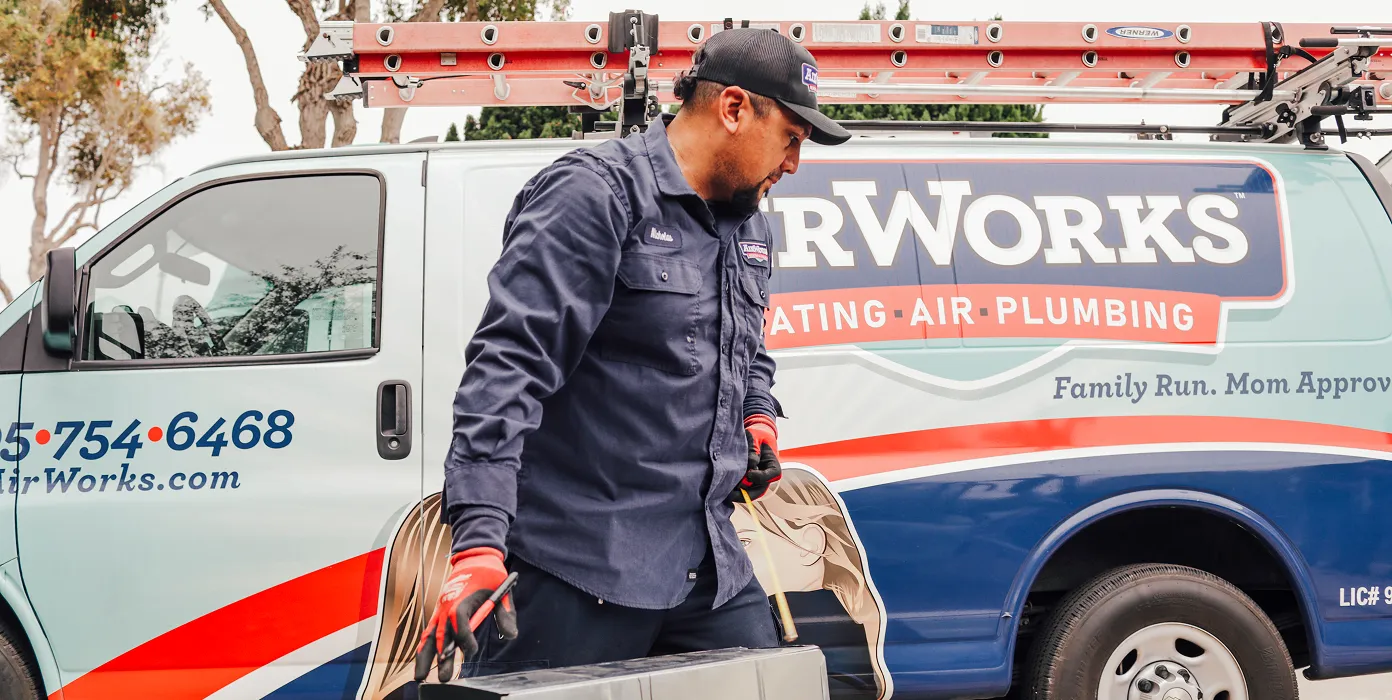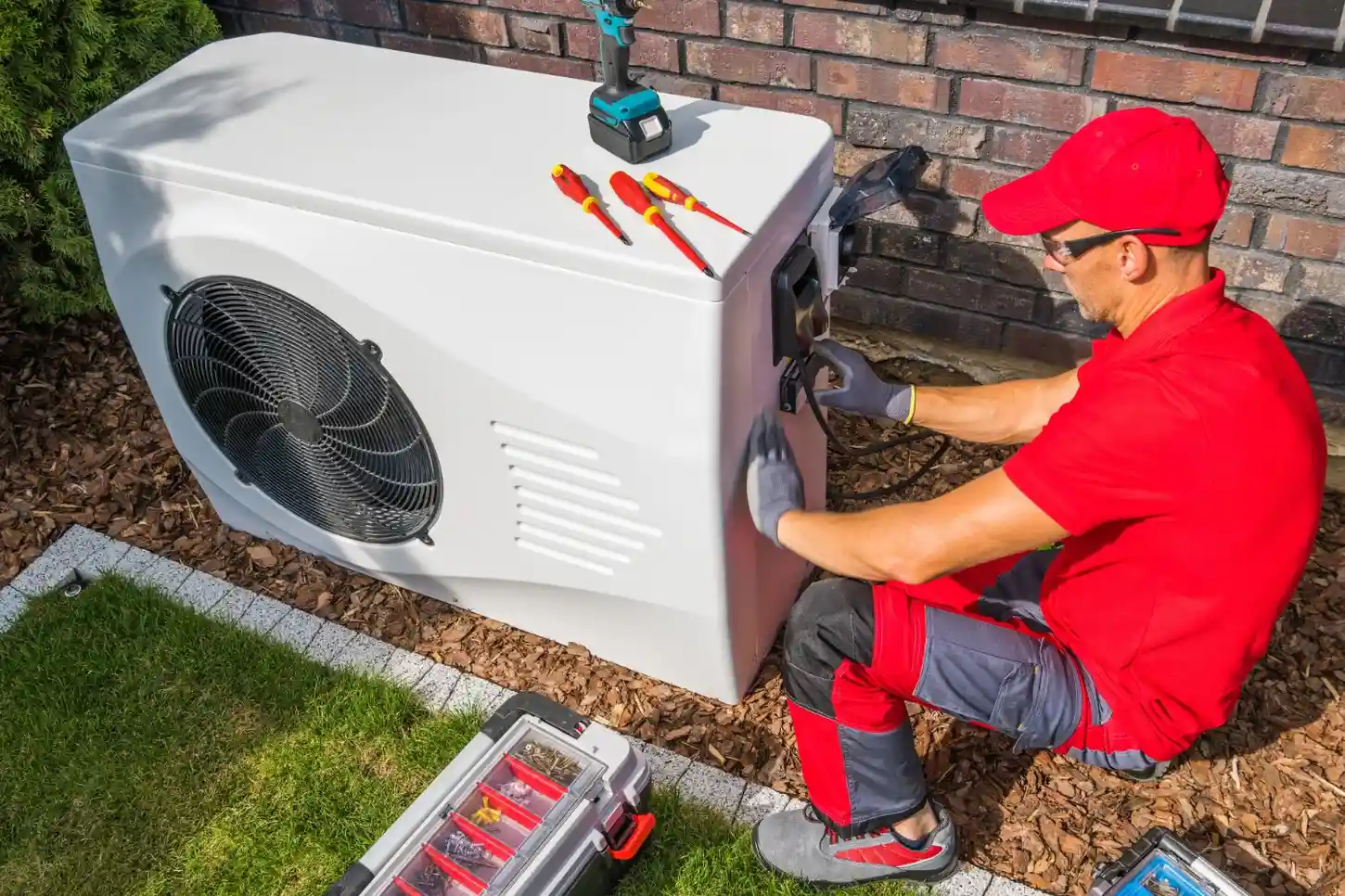Heat Pump Installation in Newbury Park, CA
Serving Ventura & Sacramento Counties

Heat Pump Installation in Newbury Park, CA
Switching to a modern heat pump can transform comfort and lower energy costs for Newbury Park homes. Heat pump installation in Newbury Park, CA provides year-round heating and cooling using a single, efficient system that is well suited to our Mediterranean climate: hot, dry summers and mild winters. This page explains how we choose the right system, what the installation process looks like for split and packaged heat pumps, common issues homeowners face, expected energy savings, available rebates and financing options, and how performance is verified after installation.
Why choose a heat pump for Newbury Park homes
- Efficient year-round comfort. Heat pumps move heat instead of creating it, delivering high efficiency for both cooling in summer and heating in the cooler months common here.
- Smaller carbon footprint. Electric heat pumps reduce fossil fuel use compared with older gas or electric-resistance systems.
- Better humidity and temperature control. Variable-speed and inverter-driven models maintain steadier indoor temps during the hot inland days and cool evenings typical of the region.
- Single system simplicity. One unit for heating and cooling simplifies maintenance and can reduce total system cost over time.

Common heat pump types and common issues in Newbury Park
Types of systems we install and service:
- Split heat pumps (ducted): Indoor air handler with outdoor condensing unit; good for homes with existing ducts.
- Ductless mini-splits: Ideal for room-by-room control or homes without ductwork.
- Packaged heat pumps: All components in one outdoor or rooftop cabinet; used where space or layout favors a single packaged unit.
Common problems homeowners search for and experience:
- Oversized or undersized equipment causing short cycling or inadequate comfort
- Poor airflow due to duct leaks, undersized ducts, or dirty filters
- Refrigerant leaks or incorrect charge reducing efficiency
- Electrical supply issues or insufficient breaker capacity
- Lack of proper commissioning leading to suboptimal performance
Site evaluation and system selection
A proper installation begins with a thorough site evaluation that includes:
- Load calculation (Manual J): Determining the correct capacity for your home based on square footage, insulation, orientation, windows, and local weather patterns.
- Duct and airflow assessment: Inspecting existing ducts for leakage, balance, and capacity. In many Newbury Park homes attic temperatures and duct routing make sealing and insulation critical.
- Electrical and panel check: Verifying the home has adequate electrical capacity and proper circuit protection for modern heat pump equipment.
- Equipment siting: Choosing outdoor unit location for airflow, noise considerations, and sunshine exposure; confirming indoor unit placement for even distribution.
- System type selection: Recommending split vs packaged vs ductless based on home layout, comfort goals, and budget.
- Efficiency targets: Discussing SEER2, HSPF2, and COP ratings so you understand ongoing operating costs and potential rebates tied to efficiency metrics.
Split heat pump installation process (what to expect)
- Site preparation: level pad or platform, clearances reviewed for airflow and access
- Indoor work: installation of air handler or evaporator coil, connection to ductwork or wall-mounted heads for ductless systems
- Outdoor work: placement of condenser, bolting to pad, electrical hook-up
- Refrigerant lines and drain: running lines, brazing connections, installing condensate drain
- Controls and thermostat: wiring and programming for efficient operation, zoning if required
- Startup and commissioning: vacuuming lines, checking refrigerant charge, verifying airflow and temperatures
- Timeline: typical residential split installations generally take one to two days depending on complexity
Packaged heat pump installation process
- Site preparation: selecting rooftop or ground mount, curb or pad construction as needed
- Duct connections: tying building ducts into the packaged unit and verifying seals
- Electrical: larger packaged units may require heavier electrical work and potential panel upgrades
- Testing and commissioning: similar verification steps as split systems including airflow, electrical load testing, and thermostat calibration
- Logistics: rooftop installations may involve crane or specialized rigging which can extend the project schedule
Post-install performance verification and documentation
After installation we verify performance with objective tests:
- Refrigerant charge and superheat/subcooling verification
- Measured airflow and static pressure across the coil
- Electrical current and voltage readings to confirm efficient operation
- Temperature split checks to ensure correct cooling and heating delta
- Thermostat and control system calibration and homeowner orientation
- Documentation of system specs, warranty paperwork, and recommended maintenance schedule
Energy savings, rebates, and financing options
- Energy savings: Modern heat pumps commonly deliver 30 to 50 percent lower energy use for heating compared with electric resistance systems and significant cooling efficiency gains compared with older AC units. Actual savings depend on system efficiency, home envelope, and usage patterns in Newbury Park.
- Rebates and incentives: Homeowners may qualify for utility rebates, state incentive programs, and federal tax credits that lower upfront cost. Identifying available rebates for high-efficiency heat pumps can change the economics significantly.
- Financing: Flexible financing programs that spread the cost of installation over time are commonly available through third-party lenders. Many homeowners use financing to match the upfront investment with long-term energy savings.
Long-term value and recommended maintenance
- Routine tune-ups: Annual or biannual maintenance keeps refrigerant charge correct, coils clean, and airflow optimized—directly preserving efficiency and lifespan.
- Filter and drain care: Regular filter changes and condensate drain checks prevent airflow restrictions and moisture issues common in coastal-influenced Ventura County climates.
- Duct sealing and insulation: Addressing duct leakage and insulating attic ducts reduces losses and stabilizes comfort during Newbury Park summer heat.
- Warranty and performance reviews: Keeping records of maintenance and performance checks helps maintain manufacturer warranties and ensures your system continues to deliver expected savings.
Heat pump installation in Newbury Park, CA, is a practical upgrade for homeowners seeking reliable year-round comfort, lower operating costs, and reduced environmental impact. With proper sizing, quality installation, and routine maintenance, a modern heat pump can be one of the best long-term investments for local homes.
Energy-Efficient Heat Pump Installations Designed for Year-Round Comfort
Upgrade your home’s HVAC system with AirWorks Heating Air Plumbing, the trusted expert for heat pump installation in Newbury Park, CA. Our team delivers professionally sized, code-compliant systems that provide both heating and cooling—perfect for Newbury Park’s hot summers and cool evenings. Whether ducted, ductless, or packaged, we install high-efficiency models backed by detailed commissioning, available rebates, and expert performance verification. Lower your energy bills while simplifying your comfort system with a single, reliable solution.
Start Saving Year-Round with a Professionally Installed Heat Pump in Newbury Park, CA


